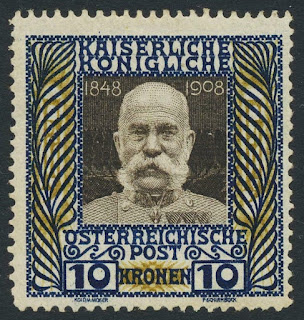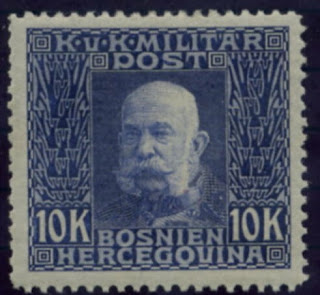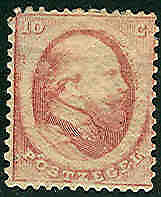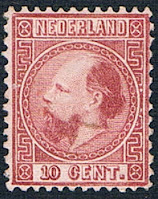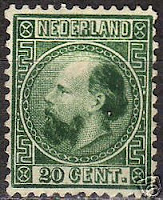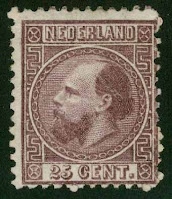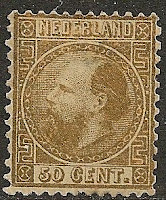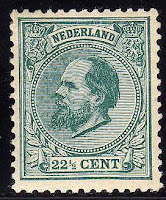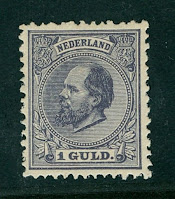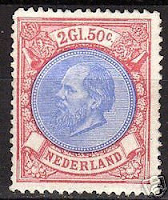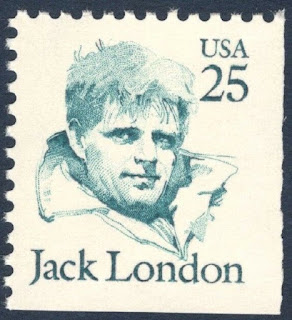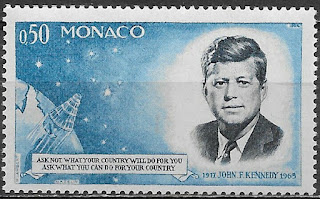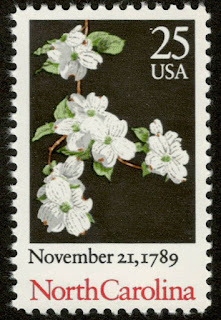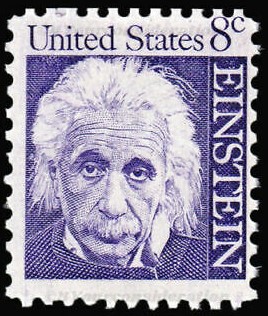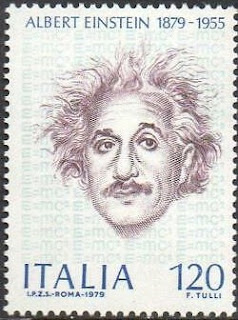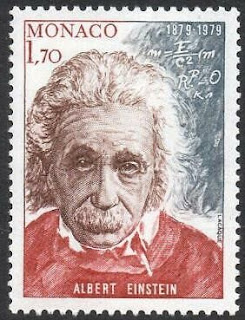Here are some events that happened on November 21st. It could be an event or a person that died or was born on that day
1676 – The Danish astronomer Ole Rømer presents the first quantitative measurements of the speed of light.
Ole Christensen Rømer (25 September 1644 – 19 September 1710) was a Danish astronomer who, in 1676, made the first quantitative measurements of the speed of light.
Rømer also invented the modern thermometer showing the temperature between two fixed points, namely the points at which water respectively boils and freezes.
In addition to inventing the first street lights in Copenhagen, Rømer also invented the meridian circle, the altazimuth, and the passage instrument (also known as the transit instrument, a type of meridian circle whose horizontal axis is not fixed in the east-west direction).
In scientific literature, alternative spellings such as "Roemer", "Römer", or "Romer" are common.
Danish stamp depicting Ole Rømer
1694 Born: Voltaire, French philosopher and author (d. 1778)
François-Marie Arouet (21 November 1694 – 30 May 1778), known by his nom de plume Voltaire , was a French Enlightenment writer, historian, and philosopher famous for his wit, his criticism of Christianity—especially the Roman Catholic Church—as well as his advocacy of freedom of speech, freedom of religion, and separation of church and state.
Voltaire was a versatile and prolific writer, producing works in almost every literary form, including plays, poems, novels, essays, histories, and scientific expositions. He wrote more than 20,000 letters and 2,000 books and pamphlets. He was one of the first authors to become renowned and commercially successful internationally. He was an outspoken advocate of civil liberties, and he was at constant risk from the strict censorship laws of the Catholic French monarchy. His polemics witheringly satirized intolerance, religious dogma, and the French institutions of his day.
François-Marie Arouet was born in Paris, the youngest of the five children of François Arouet (1649–1722), a lawyer who was a minor treasury official, and his wife, Marie Marguerite Daumard (c. 1660–1701), whose family was on the lowest rank of the French nobility. Some speculation surrounds Voltaire's date of birth, because he claimed he was born on 20 February 1694 as the illegitimate son of a nobleman, Guérin de Rochebrune or Roquebrune. Two of his older brothers—Armand-François and Robert—died in infancy, and his surviving brother Armand and sister Marguerite-Catherine were nine and seven years older, respectively. Nicknamed "Zozo" by his family, Voltaire was baptized on 22 November 1694, with François de Castagnère, abbé de Châteauneuf, and Marie Daumard, the wife of his mother's cousin, standing as godparents. He was educated by the Jesuits at the Collège Louis-le-Grand (1704–1711), where he was taught Latin, theology, and rhetoric; later in life he became fluent in Italian, Spanish, and English.
By the time he left school, Voltaire had decided he wanted to be a writer, against the wishes of his father, who wanted him to become a lawyer. Voltaire, pretending to work in Paris as an assistant to a notary, spent much of his time writing poetry. When his father found out, he sent Voltaire to study law, this time in Caen, Normandy. But the young man continued to write, producing essays and historical studies. Voltaire's wit made him popular among some of the aristocratic families with whom he mixed. In 1713, his father obtained a job for him as a secretary to the new French ambassador in the Netherlands, the marquis de Châteauneuf, the brother of Voltaire's godfather. At The Hague, Voltaire fell in love with a French Protestant refugee named Catherine Olympe Dunoyer (known as 'Pimpette'). Their affair, considered scandalous, was discovered by de Châteauneuf and Voltaire was forced to return to France by the end of the year.
Voltaire was imprisoned in the Bastille from 16 May 1717 to 15 April 1718 in a windowless cell with ten-foot-thick walls.
Most of Voltaire's early life revolved around Paris. From early on, Voltaire had trouble with the authorities for critiques of the government. As a result, he was twice sentenced to prison and once to temporary exile to England. One satirical verse, in which Voltaire accused the Régent of incest with his daughter, resulted in an eleven-month imprisonment in the Bastille. The Comédie-Française had agreed in January 1717 to stage his debut play, Œdipe, and it opened in mid-November 1718, seven months after his release. Its immediate critical and financial success established his reputation. Both the Régent and King George I of Great Britain presented Voltaire with medals as a mark of their appreciation.
He mainly argued for religious tolerance and freedom of thought. He campaigned to eradicate priestly and aristo-monarchical authority, and supported a constitutional monarchy that protects people's rights.
Voltaire's best-known histories are History of Charles XII (1731), The Age of Louis XIV (1751), and his Essay on the Customs and the Spirit of the Nations (1756). He broke from the tradition of narrating diplomatic and military events, and emphasized customs, social history and achievements in the arts and sciences. The Essay on Customs traced the progress of world civilization in a universal context, rejecting both nationalism and the traditional Christian frame of reference. Influenced by Bossuet's Discourse on Universal History (1682), he was the first scholar to attempt seriously a history of the world, eliminating theological frameworks, and emphasizing economics, culture and political history. He treated Europe as a whole rather than a collection of nations. He was the first to emphasize the debt of medieval culture to Middle Eastern civilization, but otherwise was weak on the Middle Ages. Although he repeatedly warned against political bias on the part of the historian, he did not miss many opportunities to expose the intolerance and frauds of the church over the ages. Voltaire advised scholars that anything contradicting the normal course of nature was not to be believed. Although he found evil in the historical record, he fervently believed reason and expanding literacy would lead to progress.
Voltaire explains his view of historiography in his article on "History" in Diderot's Encyclopédie: "One demands of modern historians more details, better ascertained facts, precise dates, more attention to customs, laws, mores, commerce, finance, agriculture, population." Voltaire's histories imposed the values of the Enlightenment on the past, but at the same time he helped free historiography from antiquarianism, Eurocentrism, religious intolerance and a concentration on great men, diplomacy, and warfare. Yale professor Peter Gay says Voltaire wrote "very good history", citing his "scrupulous concern for truths", "careful sifting of evidence", "intelligent selection of what is important", "keen sense of drama", and "grasp of the fact that a whole civilization is a unit of study"
From an early age, Voltaire displayed a talent for writing verse, and his first published work was poetry. He wrote two book-long epic poems, including the first ever written in French, the Henriade, and later, The Maid of Orleans, besides many other smaller pieces.
The Henriade was written in imitation of Virgil, using the alexandrine couplet reformed and rendered monotonous for modern readers but it was a huge success in the 18th and early 19th century, with sixty-five editions and translations into several languages. The epic poem transformed French King Henry IV into a national hero for his attempts at instituting tolerance with his Edict of Nantes. La Pucelle, on the other hand, is a burlesque on the legend of Joan of Arc.
French stamps depicting Voltaire
1789 – North Carolina ratifies the United States Constitution and is admitted as the 12th U.S. state.
North Carolina is a state in the southeastern region of the United States. North Carolina is the 28th largest and 9th-most populous of the 50 United States. It is bordered by Virginia to the north, the Atlantic Ocean to the east, Georgia and South Carolina to the south, and Tennessee to the west. Raleigh is the state's capital and Charlotte is its largest city. The Charlotte metropolitan area, with an estimated population of 2,569,213 in 2018, is the most-populous metropolitan area in North Carolina, the 23rd-most populous in the United States, and the largest banking center in the nation after New York City. The Raleigh metropolitan area is the second-largest metropolitan area in the state, with an estimated population of 1,362,540 in 2018, and is home to the largest research park in the United States, Research Triangle Park.
North Carolina was established as a royal colony in 1729 and is one of the original Thirteen Colonies. North Carolina is named in honor of King Charles I of England who first formed the English colony, Carolus being Latin for "Charles". On November 21, 1789, North Carolina became the 12th state to ratify the United States Constitution. In the run-up to the American Civil War, North Carolina declared its secession from the Union on May 20, 1861, becoming the last of eleven states to join the Confederate States. Following the Civil War, the state was restored to the Union on June 25, 1868. On December 17, 1903, Orville and Wilbur Wright successfully piloted the world's first controlled, sustained flight of a powered, heavier-than-air aircraft at Kill Devil Hills in North Carolina's Outer Banks. North Carolina uses the slogan "First in Flight" on state license plates to commemorate this achievement, alongside a newer alternative design bearing the slogan "First in Freedom" in reference to the Mecklenburg Declaration.
North Carolina is defined by a wide range of elevations and landscapes. From west to east, North Carolina's elevation descends from the Appalachian Mountains to the Piedmont and Atlantic coastal plain. North Carolina's Mount Mitchell at 6,684 feet (2,037 m) is the highest-point in North America east of the Mississippi River. Most of the state falls in the humid subtropical climate zone; however, the western, mountainous part of the state has a subtropical highland climate.
US Stamp and FDC issued to commemorate North Carolina's US Statehood
1905 – Albert Einstein's paper that leads to the mass–energy equivalence formula, E = mc², is published in the journal Annalen der Physik.
Albert Einstein (14 March 1879 – 18 April 1955) was a German-born theoretical physicist who developed the theory of relativity, one of the two pillars of modern physics (alongside quantum mechanics). His work is also known for its influence on the philosophy of science. He is best known to the general public for his mass–energy equivalence formula E = mc2, which has been dubbed "the world's most famous equation". He received the 1921 Nobel Prize in Physics "for his services to theoretical physics, and especially for his discovery of the law of the photoelectric effect", a pivotal step in the development of quantum theory.
The son of a salesman who later operated an electrochemical factory, Einstein was born in the German Empire but moved to Switzerland in 1895 and renounced his German citizenship in 1896. Specializing in physics and mathematics, he received his academic teaching diploma from the Swiss Federal Polytechnic School (German: eidgenössische polytechnische Schule) in Zürich in 1900. The following year, he acquired Swiss citizenship, which he kept for his entire life. After initially struggling to find work, from 1902 to 1909 he was employed as a patent examiner at the Swiss Patent Office in Bern.
Near the beginning of his career, Einstein thought that Newtonian mechanics was no longer enough to reconcile the laws of classical mechanics with the laws of the electromagnetic field. This led him to develop his special theory of relativity during his time at the Swiss Patent Office. In 1905, called his annus mirabilis (miracle year), he published four groundbreaking papers, which attracted the attention of the academic world; the first outlined the theory of the photoelectric effect, the second paper explained Brownian motion, the third paper introduced special relativity, and the fourth mass-energy equivalence. That year, at the age of 26, he was awarded a PhD by the University of Zurich.
Although initially treated with skepticism from many in the scientific community, Einstein's works gradually came to be recognised as significant advancements. He was invited to teach theoretical physics at the University of Bern in 1908 and the following year moved to the University of Zurich, then in 1911 to Charles University in Prague before returning to ETH (the newly renamed Federal Polytechnic School) in Zürich in 1912. In 1914, he was elected to the Prussian Academy of Sciences in Berlin, where he remained for 19 years. Soon after publishing his work on special relativity, Einstein began working to extend the theory to gravitational fields; he then published a paper on general relativity in 1916, introducing his theory of gravitation. He continued to deal with problems of statistical mechanics and quantum theory, which led to his explanations of particle theory and the motion of molecules. He also investigated the thermal properties of light and the quantum theory of radiation, the basis of the laser, which laid the foundation of the photon theory of light. In 1917, he applied the general theory of relativity to model the structure of the universe.
In 1933, while Einstein was visiting the United States, Adolf Hitler came to power. Because of his Jewish background, Einstein did not return to Germany. He settled in the United States and became an American citizen in 1940. On the eve of World War II, he endorsed a letter to President Franklin D. Roosevelt alerting FDR to the potential development of "extremely powerful bombs of a new type" and recommending that the US begin similar research. This eventually led to the Manhattan Project. Einstein supported the Allies, but he generally denounced the idea of using nuclear fission as a weapon. He signed the Russell–Einstein Manifesto with British philosopher Bertrand Russell, which highlighted the danger of nuclear weapons. He was affiliated with the Institute for Advanced Study in Princeton, New Jersey, until his death in 1955.
He published more than 300 scientific papers and more than 150 non-scientific works. His intellectual achievements and originality have made the word "Einstein" synonymous with "genius". Eugene Wigner compared him to his contemporaries, writing that "Einstein's understanding was deeper even than Jancsi von Neumann's. His mind was both more penetrating and more original".
Stamps from various countries depicting Albert Einstein
1916 Died: Franz Joseph I of Austria (b. 1830)
Franz Joseph I or Francis Joseph I (German: Franz Joseph I.; 18 August 1830 – 21 November 1916) was Emperor of Austria, King of Hungary, King of Bohemia, and monarch of many other states of the Austro-Hungarian Empire, from 2 December 1848 to his death. From 1 May 1850 to 24 August 1866 he was also President of the German Confederation. He was the longest-reigning Emperor of Austria and King of Hungary, as well as the third-longest-reigning monarch of any country in European history, after Louis XIV of France and Johann II of Liechtenstein.
In December 1848, Emperor Ferdinand abdicated the throne at Olomouc, as part of Minister President Felix zu Schwarzenberg's plan to end the Revolutions of 1848 in Hungary. This allowed Ferdinand's nephew Franz Joseph to accede to the throne. Largely considered to be a reactionary, Franz Joseph spent his early reign resisting constitutionalism in his domains. The Austrian Empire was forced to cede its influence over Tuscany and most of its claim to Lombardy–Venetia to the Kingdom of Piedmont-Sardinia, following the Second Italian War of Independence in 1859 and the Third Italian War of Independence in 1866. Although Franz Joseph ceded no territory to the Kingdom of Prussia after the Austrian defeat in the Austro-Prussian War, the Peace of Prague (23 August 1866) settled the German Question in favour of Prussia, which prevented the Unification of Germany from occurring under the House of Habsburg.
Franz Joseph was troubled by nationalism during his entire reign. He concluded the Austro-Hungarian Compromise of 1867, which granted greater autonomy to Hungary and transformed the Austrian Empire into the Dual Monarchy of Austria-Hungary. He ruled peacefully for the next 45 years, but personally suffered the tragedies of the execution of his brother, the Emperor Maximilian of Mexico in 1867, the suicide of his only son and heir-apparent, Crown Prince Rudolf, in 1889, the assassination of his wife, Empress Elisabeth, in 1898, and the assassination of his nephew and heir-presumptive, the Archduke Franz Ferdinand, in 1914.
After the Austro-Prussian War, Austria-Hungary turned its attention to the Balkans, which was a hotspot of international tension because of conflicting interests with the Russian Empire. The Bosnian Crisis was a result of Franz Joseph's annexation of Bosnia and Herzegovina in 1908, which had been occupied by his troops since the Congress of Berlin (1878).
On 28 June 1914, the assassination of his nephew and heir-presumptive, Archduke Franz Ferdinand, in Sarajevo resulted in Austria-Hungary's declaration of war against the Kingdom of Serbia, which was an ally of the Russian Empire. That activated a system of alliances which resulted in World War I.
Franz Joseph died on 21 November 1916, after ruling his domains for almost 68 years as one of the longest-reigning monarchs in modern history. He was succeeded by his grandnephew Charles.
Stamps from Austria, Hungary and Bosnia depicting Franz Joseph I
